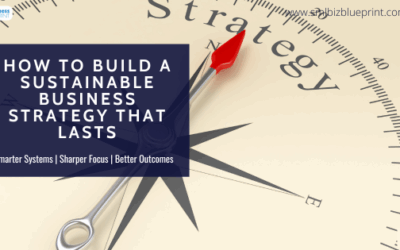Unlocking the Power of SEO for Your Small Business
Are you a small business owner looking to gain a competitive edge in the digital world?
In today’s online marketplace, where most customers start their journey with a search engine, mastering Search Engine Optimization (SEO) is crucial.

This article will guide you through the best SEO practices specifically tailored for small businesses. By the end, you’ll have the knowledge and strategies to climb the Google rankings, drive organic traffic, and boost your business’s online visibility.
I. Keyword Research: Your Roadmap to Success
Why should you do it?
Keyword research is the foundation of effective SEO. By identifying the keywords your potential customers are searching for, you can tailor your content to meet their needs.
How to do it:
Tools for Success: Utilize keyword research tools like Google Keyword Planner or SEMrush to discover relevant keywords.
Long-Tail Keywords: Target long-tail keywords specific to your niche for better chances of ranking.
Competitor Analysis: Analyze your competitors’ keywords and strategies to find opportunities.
Expanding on Keyword Research:
Effective keyword research can uncover hidden gems that your competitors may have overlooked.
As a small business, you can use this to your advantage. For instance, if you run a boutique bakery, you might find that “artisanal gluten-free cupcakes” is a highly specific, low-competition keyword.
By optimising your content around such niche keywords, you can attract a dedicated customer base.
II. On-Page SEO: Making Your Website Google-Friendly
Why should you do it?
On-page SEO optimises your website’s pages, making them more appealing to search engines and users.
How to do it:
Optimise Meta Tags: Craft compelling meta titles and descriptions with target keywords.
Quality Content: Create high-quality, keyword-rich content that addresses user intent.
User-Friendly URLs: Ensure user-friendly, readable URLs and use proper header tags.
Expanding on On-Page SEO:
Optimising your meta tags and descriptions isn’t just about keyword placement; it’s about enticing users to click. A well-crafted meta description can significantly impact your click-through rate (CTR).
For example, instead of a generic description like “Bakery in Townsville,” use something more compelling like “Discover Townsville’s Most Decadent Cupcakes – Visit Our Bakery Today!” This not only includes keywords but also encourages users to take action.
III. Technical SEO: A Strong Foundation
Why should you do it?
Technical SEO ensures that your website is technically sound and user-friendly, improving your site’s performance and ranking potential.
How to do it:
Website Speed: Optimize page loading times for a better user experience.
Mobile-Friendliness: Ensure your website is mobile-responsive.
Sitemaps and Robots.txt: Use XML sitemaps and robots.txt files to guide search engine crawlers.
Expanding on Technical SEO:
Website speed is not just about SEO; it’s also about user satisfaction. Did you know that 47% of users expect a webpage to load in 2 seconds or less?
Slow-loading pages can lead to high bounce rates, negatively affecting user experience and rankings. Ensure that your website is not only optimised for SEO but also for a seamless user journey.

IV. Off-Page SEO: Building Authority and Reputation
Why should you do it?
Off-page SEO boosts your website’s credibility and authority, making it more appealing to search engines.
How to do it:
Backlink Building: Earning high-quality backlinks from reputable websites is essential.
Social Media Engagement: Actively engage with your audience on social media platforms.
Local SEO: Optimize your online presence for local search.
Expanding on Off-Page SEO:
Let’s delve deeper into backlink building. Not all backlinks are created equal. Google values the quality of backlinks over their quantity.
A single backlink from a well-established, authoritative website can carry more weight than dozens of low-quality links. Focus on building relationships with industry influencers and authoritative sites to earn valuable backlinks.
V. Monitoring and Analytics: Measure Your Success
Why should you do it?
Regular monitoring and analysis help you track your progress and make necessary adjustments.
How to do it:
Google Analytics: Use Google Analytics to track organic traffic, bounce rate, and more.
Key Metrics: Monitor key performance indicators to assess your SEO efforts.
Continuous Improvement: Understand that SEO is an ongoing process, and be prepared to adapt.
Expanding on Monitoring and Analytics:
Google Analytics is a treasure trove of insights, but it’s essential to focus on the metrics that matter most to your business.
For instance, if your primary goal is to generate leads, closely monitor conversion rates and the source of those conversions. Understanding these metrics will enable you to fine-tune your SEO strategy for maximum ROI.
VI. Content Marketing and SEO: A Winning Combination
Why should you do it?
Content marketing and SEO go hand in hand, allowing you to create valuable content that attracts users and search engines.
How to do it:
Valuable Content: Craft shareable content that provides value to your audience.
Promotion: Promote your content through various social media and email marketing channels.
Link-Building: Use content marketing to earn high-quality backlinks.
Expanding on Content Marketing and SEO:
Creating valuable content doesn’t stop at blog posts and articles. Consider diversifying your content, including videos, infographics, and podcasts.
Visual content is engaging and more likely to be shared on social media platforms, amplifying your SEO efforts.
VIII. Common SEO Pitfalls to Avoid: Stay on the Right Path
Why should you do it?
Understanding common pitfalls will help you avoid costly mistakes and maintain a sustainable SEO strategy.
Pitfalls to Avoid:
Neglecting mobile optimisation.
Stuffing keywords unnaturally into content.
Ignoring user experience and site speed.
Expanding on Common SEO Pitfalls to Avoid:
Mobile optimisation is no longer an option; it’s a necessity. With most internet traffic from mobile devices, overlooking mobile optimisation can lead to missed opportunities.

FAQs:
Q1: What is the importance of keyword research for small businesses?
A1: Keyword research provides insights into customer intent and helps small businesses tailor their content to attract the right audience.
Q2: How can I improve my website’s loading speed?
A2: Optimizing images, browser caching, and code minimising can enhance website speed.
Q3: Why is local SEO crucial for small businesses?
A3: Local SEO increases visibility within the local community, driving foot traffic and conversions.
Q4: How often should I monitor my SEO performance?
A4: Regular monitoring, at least monthly, allows you to detect trends and make timely adjustments.
Q5: What are the consequences of keyword stuffing in content?
A5: Keyword stuffing can lead to poor user experience and may result in search engine penalties.
Conclusion
Let’s elaborate on the importance of local SEO for small businesses. Local SEO not only improves your online visibility but also drives offline actions.
According to recent studies, over 70% of consumers visit a store within five miles of their location after a local search. Highlighting this statistic underscores the tangible benefits of investing in local SEO.
In conclusion, SEO is not an option; it’s necessary for small businesses aiming to thrive in the digital age.
Use this article as a guide to help you understand what is involved in SEO and how you can begin your journey toward climbing the Google rankings.
However, it’s essential to acknowledge the ever-evolving nature of search engine algorithms and the increasing role of AI in shaping search results.
Given the constant updates and changes with algorithms and AI, we recommend that every small business consider involving an SEO expert in some capacity.
Whether consulting with an SEO specialist for a strategy review, conducting an SEO audit, or seeking ongoing guidance, having a professional by your side can make a significant difference in navigating the dynamic landscape of search engine optimisation.
By implementing the strategies outlined in this article and collaborating with SEO experts when needed, you’ll position your business for success in the digital world.
Start your SEO journey today, and watch your small business climb the Google rankings and thrive in the competitive online marketplace.




